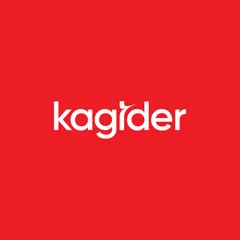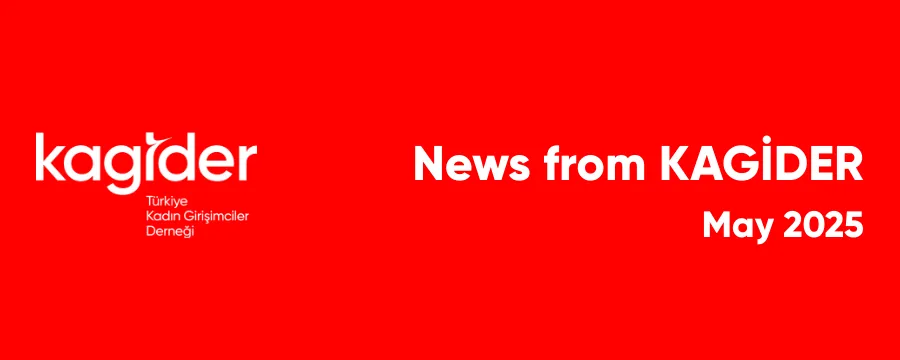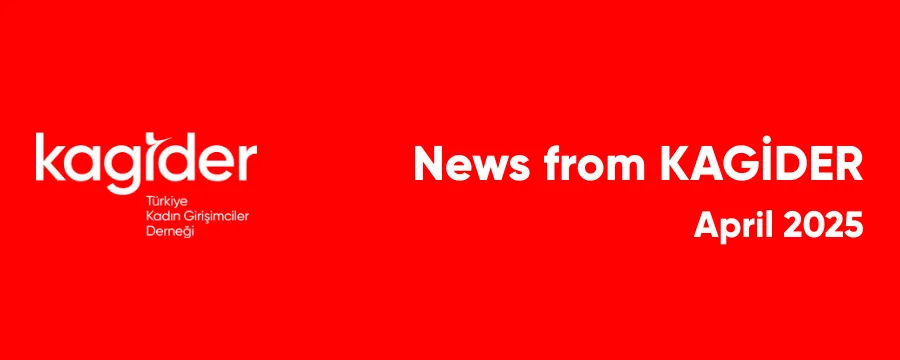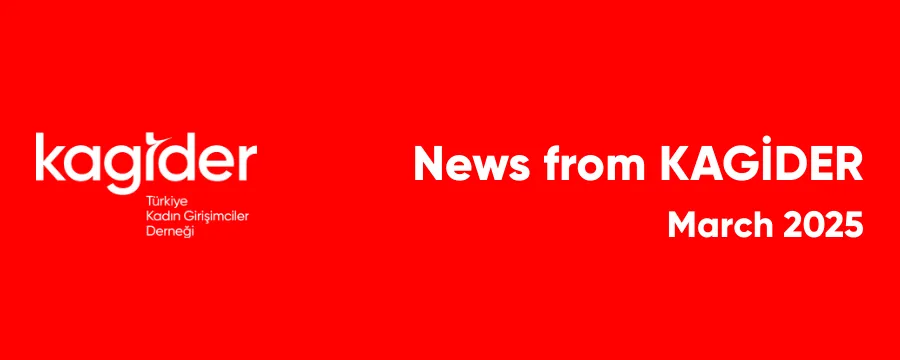KAGİDER Economic Advisor Özlem Derici Şengül Wrote: A Key Interest Rate Move and a New Chapter in Economic Policy
Last week, the Central Bank of the Republic of Turkey (CBRT) not only announced a key interest rate decision but also followed up with critical regulatory changes affecting both the business world and the banking sector. As expected by most market professionals, the CBRT raised its policy rate from 30.0% to 35.0%.
In its policy note, the CBRT assessed that the inflationary impact of past wage increases and tax hikes has largely run its course. However, it also noted that rising geopolitical risks could push oil prices higher in the coming period, thereby increasing costs.
According to the CBRT’s Inflation Report published three months ago, the end-of-year inflation forecast for 2023 stands at 58.0%, while the 2024 forecast is 33.0%. The latest policy note mentioned that inflation is currently hovering near the upper limit of this forecast range—suggesting that in the new Inflation Report to be released on November 2 at 10:30 AM, these projections may be revised upward. While market expectations place year-end 2023 inflation close to 70%, the consensus for the end of 2024 is above 45%.
If the CBRT maintains lower-than-market expectations for inflation, it may conclude its rate hikes earlier than the market anticipates. On the other hand, aligning with market expectations would indicate that further hikes may be on the horizon.
In addition to the rate hike, the CBRT also abolished many restrictive regulations that had been implemented over the past year and had hindered credit access, particularly for commercial loans. Although rising policy rates are expected to increase both loan and deposit costs, the removal of policies that forced banks to direct resources toward government bonds instead of loans is a major step toward a healthier credit and deposit mechanism.
As of October 20, the average 3-month deposit rate stands at 43.7%. The system still contains excess Turkish Lira (TL) liquidity due to FX-protected deposit accounts (KKM), which complicates inflation control. We may therefore see new measures aimed at withdrawing this excess TL from the system, which would push deposit rates even higher. This increase in deposit rates—the cost of funds for banks—will likely lead to higher loan interest rates as well.
As of the same date:
- The average consumer loan rate is 61.3%,
- Vehicle loan rate is 47.2%,
- Mortgage loan rate is 41.5%.
While rising rates may seem discouraging from a business standpoint, these changes are crucial in transitioning back to a functioning free market system. The current tightening is necessary to curb demand, correct pricing behavior, and end the inflationary environment. Ultimately, this will allow the banking sector to resume its core function—serving the real economy more effectively.
The CBRT maintained a key phrase in its policy statement:
"Monetary tightening will be reinforced in a gradual and measured manner as and when needed until a significant improvement is achieved in the inflation outlook."
This means the CBRT will continue to keep interest rates high until expectations are anchored, the financial system operates healthily, and—not prices, but—price increases begin to slow down.
We are likely to see smaller rate hikes in November and December, bringing the year-end policy rate to around 40%, up from the current 35%. What happens after that will depend on year-end economic conditions.
Until then, the responsibility of the business world is to prepare for tighter financial conditions over the next six months: take precautions, act prudently, and start planning for the second half of next year.
The steps we take today will create the foundation for a more dynamic and resilient economy tomorrow.
As we celebrate the 100th anniversary of our Republic, let us remember: just as the women who built this nation made history, they will continue to be the lifeblood and pride of our economy—today, in the first days of our second century, and beyond.
Wishing you resilience, success, and prosperity in your work.
Özlem Derici Şengül
KAGİDER Economic Advisor

KAGİDER Üyesi
Girişimci
KAGİDER ÜyesiSuggested Blog Posts

KAGİDER Activities - May 2025

KAGİDER Activities - April 2025




 EN
EN TR
TR